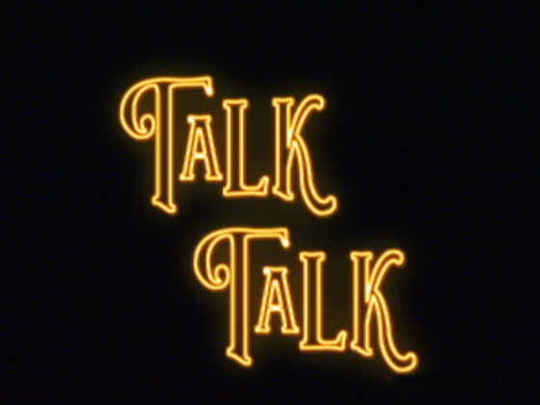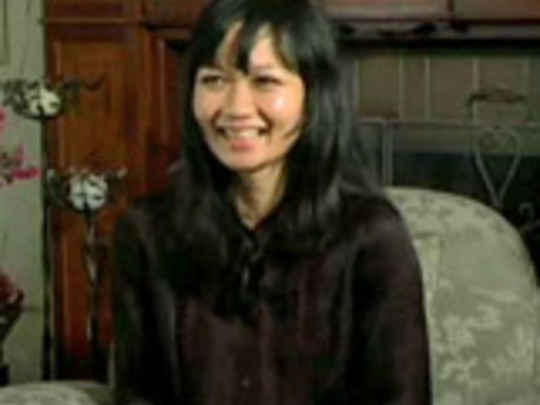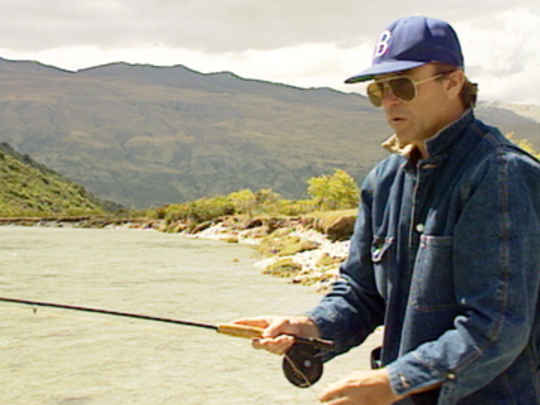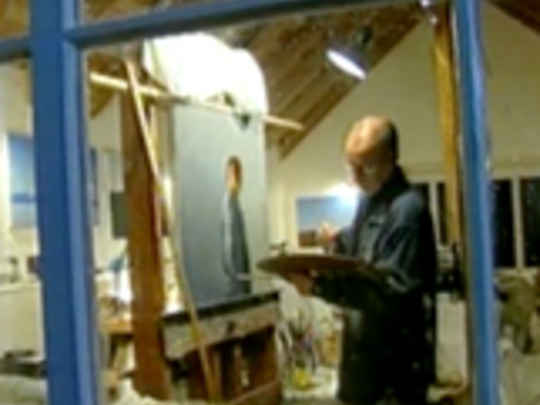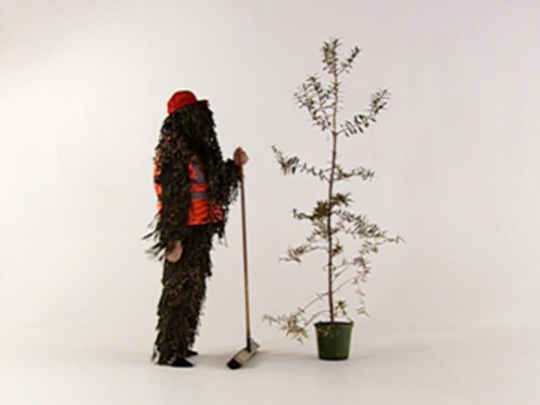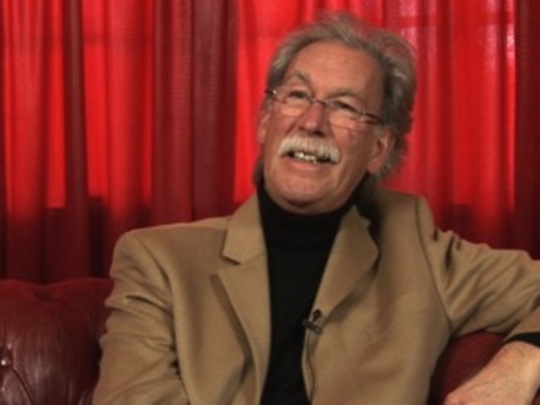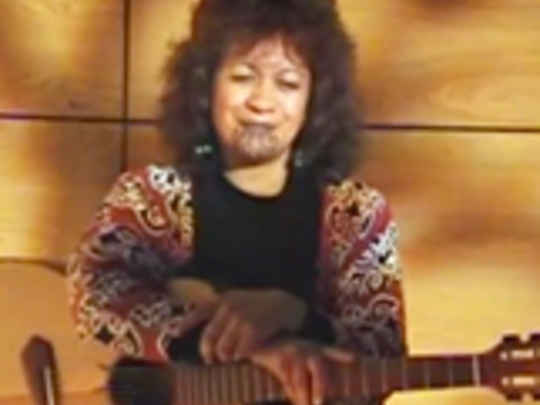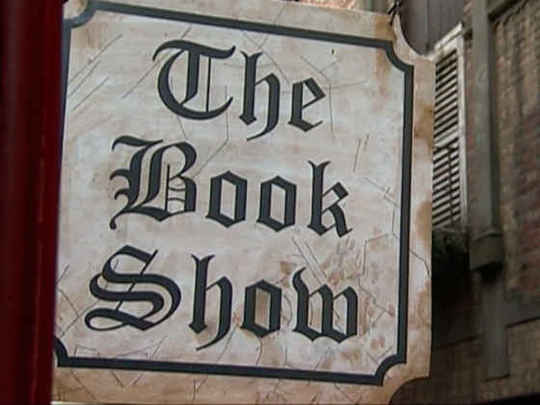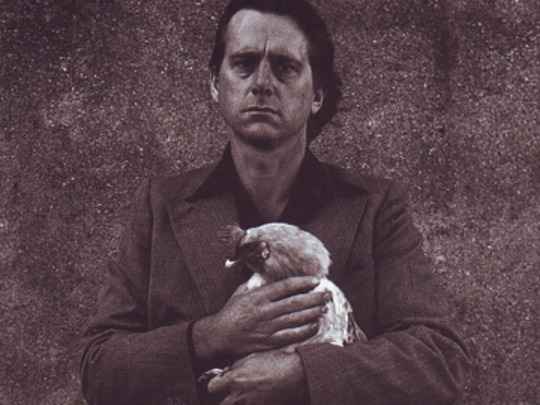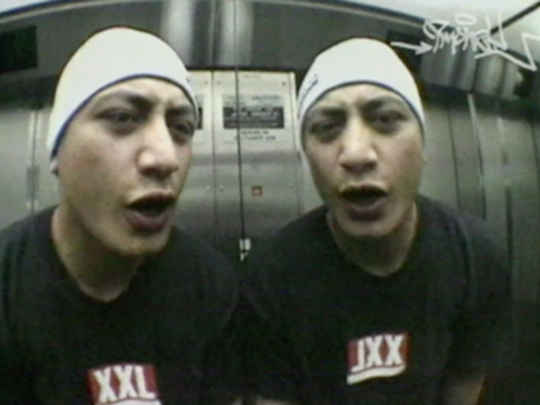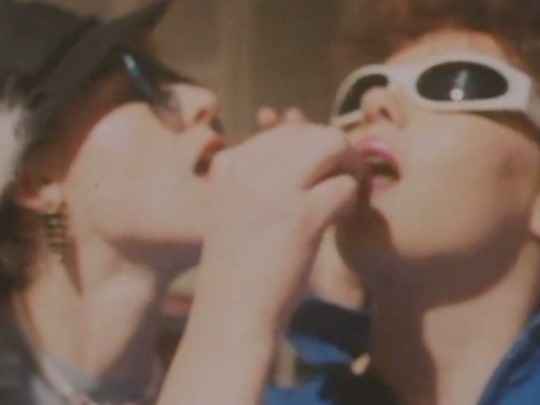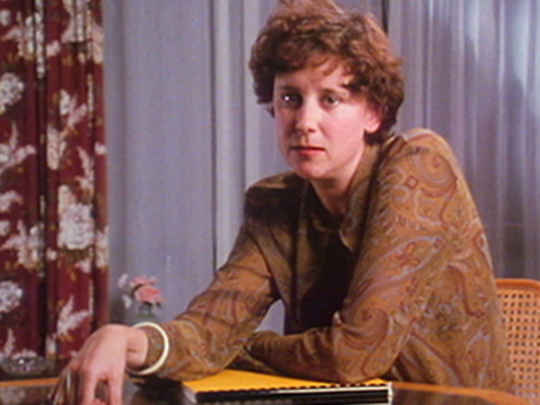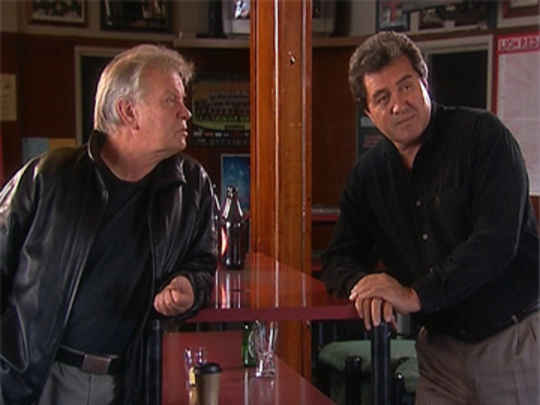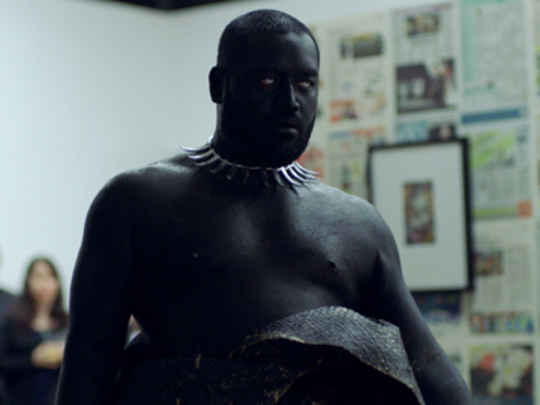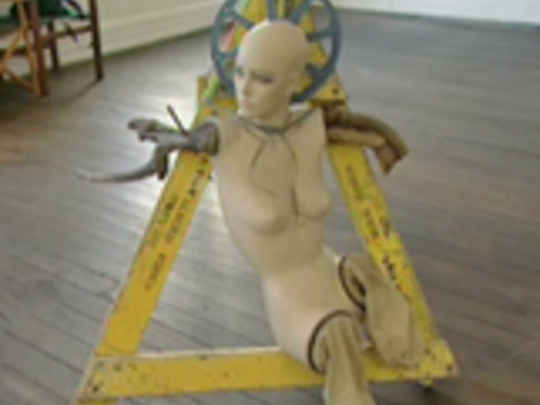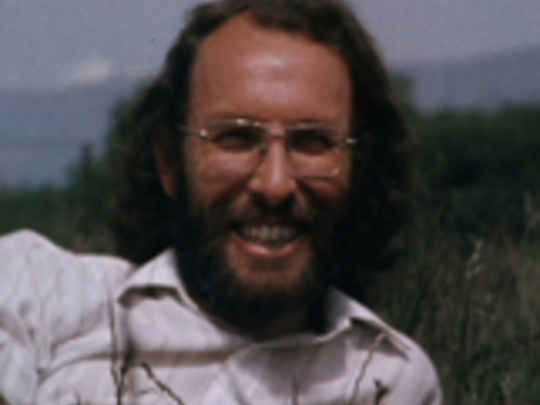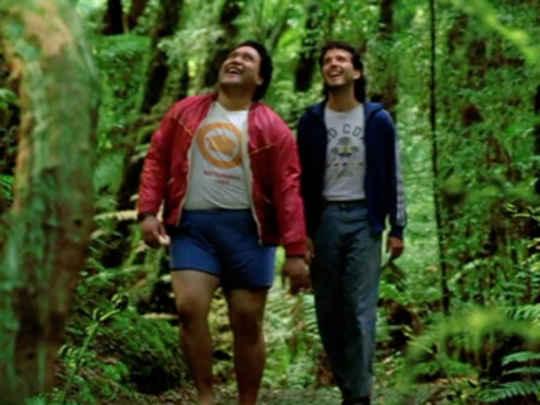1: Bic Runga, Sam Neill
2: Scribe, Kapka Kassabova, Jubilation Choir
3: Murray Crane, Paula Morris, The Bads
4: Murray Grindlay, Shigeyuki Kihara
5: Nigel Brown, Jenny Pattrick, Dudley Benson
6: John Reynolds, Jenny Bornholdt, Calico Brothers
7: Peter Peryer, Bella Hristova, Lisa Reihana
8: Whirimako Black, David Mitchell
9: Shayne Carter, Judith Tabron
10: Kirsten Morrell, Roger Hall, The Sami Sisters
11: Ladi6, Karl Maughan
12: Michele Leggott, Grahame Sydney, Broken Heartbreakers
13: Raewyn Hill, Duncan Sarkies, Jordan Luck
Talk Talk - Series Two
Television (Full Length Episodes) – 2009
...one of the ways most people rebel is by trying to look different . . . I used to go to Timaru and go op-shopping and wear old suits.– Fashion designer Murray Crane on getting interested in rebelliousness and fashion, while growing up in Geraldine, in episode three
...a big part of the book is actually about . . . not just my relationship with that very particular childhood in the Cold War on the wrong side of the Iron Curtain if you like. But it's also about our relationship with our own childhood and with memory, and what it means to revisit our childhood...– Writer Kapka Kassabova on her book Street Without A Name, in episode two
...I really loved it but after a while often when you have the dream job, it turns out not be the dream job really — that however much you love music, maybe selling it is not really the ideal thing.– Writer Paula Morris on why she left her job in the music industry to become a writer, episode three
...I love singing te reo Māori in jazz, because it gives Aotearoa an opportunity to hear our beautiful language and how flexible it can be.– Singer Whirimako Black on singing in te reo, early in episode eight
I think what you try and do with writing is try and turn those things into something else. It's a process of transformation or change. So you're always making something out of what's there...– Poet Jenny Bornholdt on everyday life providing inspiration for writing, late in episode six
I think people identify with their houses very strongly, and they have to feel as though it's a fair presentation of themselves — and that's very much a cultural thing, and a social thing.– Architect David Mitchell on how houses can be a show of face, in episode eight
I think we did two years of eight shows a week . . . I was already writing my own stuff, so all of a sudden two years of the same music over and over again was just torture.– Kirsten Morrell on performing in musical Jesus Christ Superstar, on getting, in episode 10
When I woke up in the morning, everything was snow ... it was because the trees were bare. There was no colour. The photographs I took. although I took them in colour, you would have thought were black and white. But I Iove that...– Photographer Peter Peryer on capturing a winter day in Southland, early in episode seven
I think being successful as a poet means writing really good poetry; you do not worry about the money, okay. It's never going to make money. It just is not. So the satisfaction of being able to pull together poems that you can go back to, and say "I still like these, they're still holding up." That's what I count as success.– Poet Michele Leggott, early in episode 12
There are some things that I really want to do in addition to paintings... that I'm persuaded I might be able do well enough. I've persuaded myself that.– Painter Grahame Sydney on widening his horizons, early in his episode 12 interview
I drove down with a friend down to Wellington and on the way I just took snaps out of the window of the car. So I did these sort of road landscape paintings for a while. Then I got to my mother and father's place, and I took a few shots of their garden. And in fact from those last shots on the reel I got a whole, I got two years of paintings.– Artist Karl Maughan on the inspiration for his famous garden paintings, in episode 11
...there was a very brief note under a photograph of me. It said "could be alright in homosexual roles." Now in those days, there wasn't a lot of homosexual roles to be had on TVNZ.– Actor Sam Neil on discovering his casting notes from state television, around the time he acted in Sleeping Dogs, in episode one
I feel sometimes like the literature community frown on that; they frown on the idea that someone would write a book that's easy to read.– Writer Duncan Sarkies on non-readers telling him they love his books, in episode 13
...I really can only talk from my personal experience, and it is like I stopped breathing.– Raewyn Hill on retiring as a dancer, in episode 13
Dunedin's got a great arts tradition . . . I think the other thing too is there is just no 'golden egg' to chase there. If you start a band in Dunedin thinking you are doing it to be rich and famous, well you're deluding yourself. But I think that actually lends itself to better work . . . the industry is just completely irrelevant.– Musician Shayne Carter on Dunedin
The key feature is that it's essentially a collaborative project , not only in design with Arch MacDonnell from Inhouse Design, but there are 12 different writers...– Artist John Reynolds on his collaborative arts book Certain Words Drawn, at the start of episode six
I was named by my cousin Oscar Kightley . . . back in the days when I was like 16, I was going through a heavy period of writing all the time. And I was very close to Oscar — he said to me one day "you should call yourself Scribe because you write all the time."– Rapper Scribe explains where his stage name came from, inepisode two
I started as a chef, so I left school and went straight into an apprenticeship as a chef. But as part of your apprenticeship you did front of house as well, so I was able to do a bit of waiting, and a bit of bar. So I always worked both sides, I always worked front of house and I always worked the back, and sometimes I waivered in-between, but I stayed mainly with cooking until I opened my own business.– Chef and restaurateur Judith Tabron, in episode nine
I've become, without ever setting out to do so, a chronicler of our times . . . By and large my audience has been growing up and growing old with me.– Playwright Roger Hall, in episode 10
It was nearly 10 or 11 years between when I'd first started writing it before it got published, and it had been turned down several times and rewritten and rewritten. And there was a great saga of depression really, and throwing away what I'd rewritten . . . and when finally I sent it to Random House it was absolutely last chance...– Novelist Jenny Pattrick on her debut novel The Denniston Rose's rocky road to success, late in episode five
Kevan Moore loved us because every time we came on, the switchboards would light up with the old soldiers calling in, saying 'God look at these buggers. They're wearing real firemen's jackets, and look, they've got swastikas and Iron Crosses...– Musician Murray Grindlay on his band The Underdogs being favourites of Kevan Moore, producer of 60s music show C'Mon
...you can take them in different directions. So you can break the conception that people have of Cook, and change it completely. You can almost turn him into a Māori or a woman or whatever. So you can do anything with the thing. He's a means to say sorts of things, and you can say very contemporary things; with Cook you can talk about the whole reasoning thing versus the intuitive...– Painter Nigel Brown on using historical figures like Captain Cook in his art, in episode five
Dressing myself up as a man was a very ironic thing to begin with because I am a biologically born male. But because I look so petite and I look like a woman, when it went to the photos I actually had to wear a short wig and a mustache, and then take a photograph of another man's abdomen in order to transpose my face to another man's body. So I mean, you know, I can't help it if I look like a gorgeous woman to begin with.– Fa'afafine artist Shigeyuki Kihara on her photographic art project depicting her as both genders, late in episode four
I found that I was kind of moving around and being interested in a whole lot of areas. I enjoy playing with different materials, and I've also had a long-standing interest in technology and seeing which directions that it's taking us and what kind of possibilities that opens up.– Artist Lisa Reihana on what drew her to working with technology as a multimedia artist, in episode seven
We tried to represent females in a different light, in hip hop especially. We tried to say that we could be MCs, we could be break-dancers as well, we didn't have to be just the booty girls shaking their thing.– Hip Hop artist Ladi6 on her feminist vision for group Sheelahroc, in episode 11
When I was 11 I said to myself "I'm going to have the biggest selling record in New Zealand." And by the time I was about 24 it had actually happened . . . I am really goal-driven and I haven't really had such a decisive goal since.– Singer-songwriter Bic Runga, in episode one

